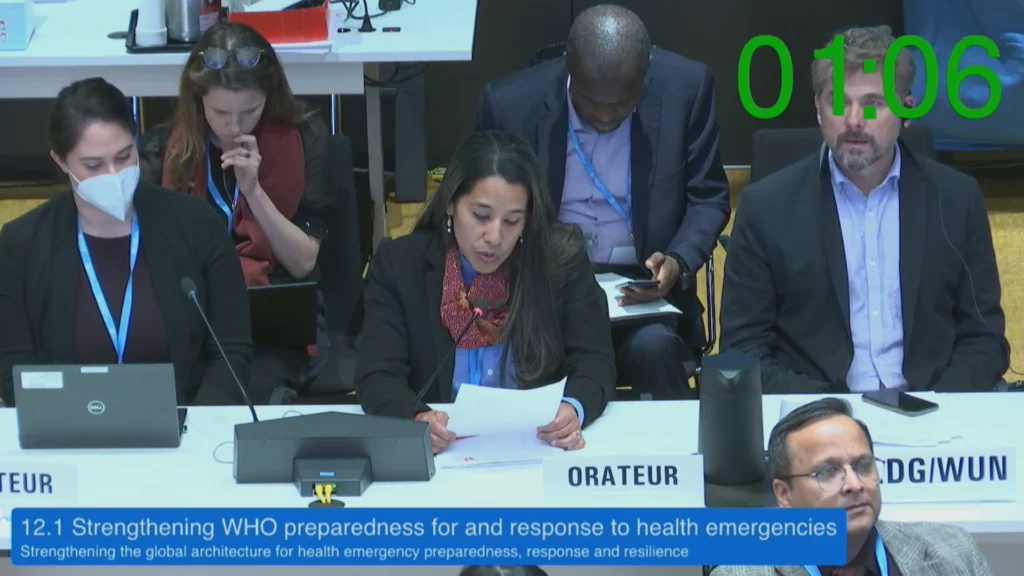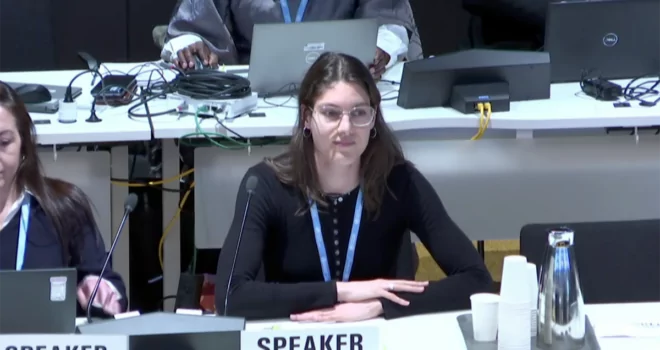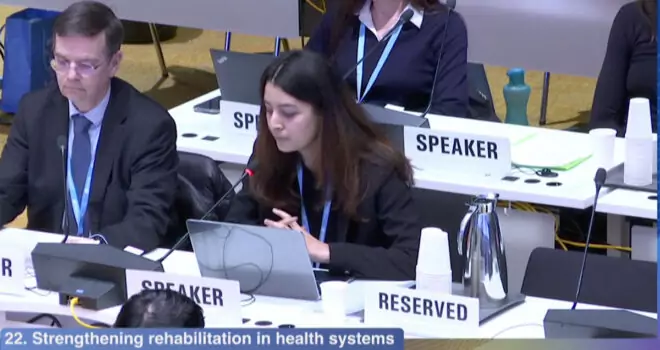The present constituency statement is delivered by the World Heart Federation on behalf of the Framework Convention Alliance on Tobacco Control, International Alliance of Patients’ Organizations, International College of Surgeons, International Diabetes Federation, International Society of Nephrology, PATH, The Worldwide Hospice Palliative Care Alliance, World Hypertension League, and World Stroke Organization at the 152nd WHO Executive Board meeting.

Honourable Chair, Distinguished Delegates,
We applaud the Director-General for his report and welcome the ten proposals, rooted in the key principles of equity, inclusivity, and coherence, to build a safer world together.
People living with circulatory conditions have been disproportionately impacted by the COVID-19 pandemic. The health impact of NCDs, including diabetes, dyslipidaemia, hypertension, kidney disease, obesity, stroke, and other circulatory conditions, remains much greater than the COVID-19 pandemic. As such, NCDs must remain a priority in preparedness, response, readiness, and coordination activities as well as accords at the national, regional, and global levels.
Our organizations, representing the Global Circulatory Health Community, a particularly vulnerable population, call on Members States to:
- Prioritize ongoing prevention, screening, and treatment for people living with circulatory conditions in national pandemic response and recovery plans through patient co-creation
- Increase domestic allocation of resources and develop targeted policies to address CVD and NCD risk factors, including solutions focusing on digital health technologies, through mechanisms such as the taxation of unhealthy commodities
- Integrate monitoring and data collection on NCD prevalence, comorbidities, and risk factors as key performance indicators of pandemic readiness, resilience, and response
- Strengthen PHC and invest in family medicine to ensure equitable as well as continuous access to essential health services, particularly for people living with NCDs and in low-resource settings
- Strengthen the NCD component of emergency preparedness and response by formalizing the above actions in a WHO convention, agreement, or international instrument on pandemic prevention, preparedness, and response.
These steps would contribute to more resilient health systems and are expanded upon in our position paper. We look forward to working with a stronger WHO and Member States to prevent, and where necessary, respond to future health emergencies.
Thank you.
Constituency Members
- Framework Convention Alliance on Tobacco Control (FCA)
- International Alliance of Patients’ Organizations (IAPO)
- International College of Surgeons (ICS)
- International Diabetes Federation (IDF)
- International Society of Nephrology (ISN)
- PATH
- The Worldwide Hospice Palliative Care Alliance (WHPCA)
- World Heart Federation (WHF)
- World Hypertension League (WHL)
- World Stroke Organization (WSO)


